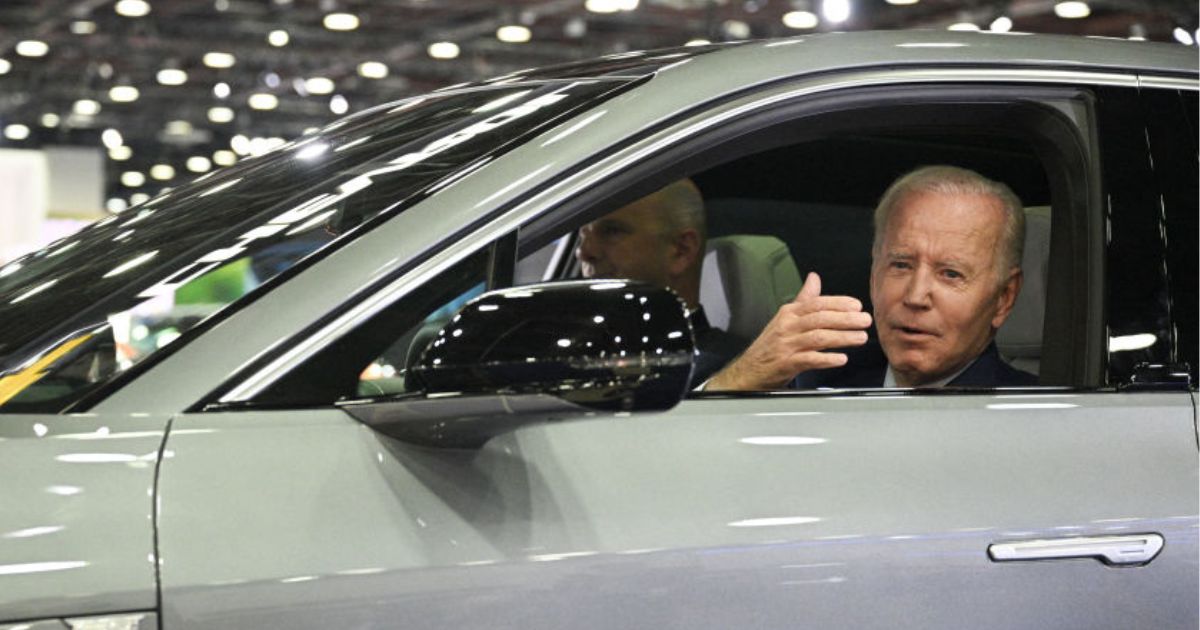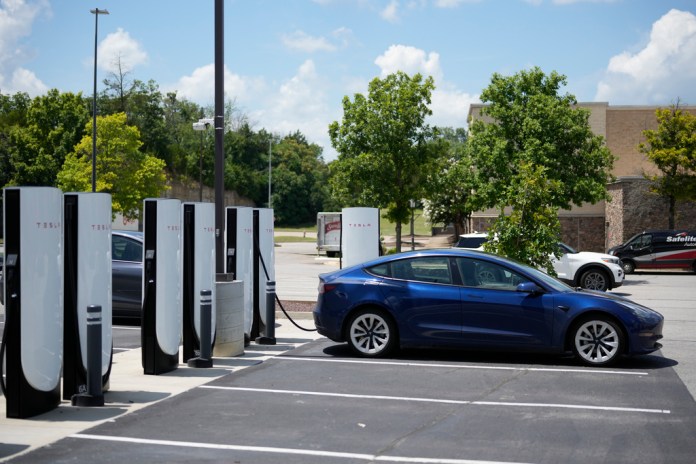Nearly Half Of Electric Vehicle Drivers Regret Their Purchase
A survey conducted by McKinsey Mobility Consumer Pulse in 2024 found that nearly half of American electric car owners expressed regret about their purchase and a desire to return to a gas-powered vehicle. The survey, which included opinions from nearly 37,000 consumers globally, revealed that 46 percent of American EV owners were likely to opt for a traditional gas-powered car for their next purchase. Reasons cited for this shift included high costs, low familiarity with electric vehicles, skepticism of the technology, and insufficient charging infrastructure. Despite the Biden administration’s promotion of electric vehicles to reduce emissions, there remains significant resistance to EVs among American consumers.
Nearly half of American electric car owners expressed regret about their purchase and a desire to return to an internal combustion engine vehicle, according to a new survey.
The McKinsey Mobility Consumer Pulse survey for 2024 found 46 percent of American electric vehicle owners were “very” likely to opt for a traditional gas-powered car for their next purchase.
Philipp Kampshoff, the head of McKinsey’s Center for Future Mobility, was surprised by how many Americans were eager to move back to gas-powered vehicles.
“I didn’t expect that,” Kampshoff told Automotive News. “I thought, ‘Once an EV buyer, always an EV buyer.’”
[RELATED:[RELATED:If You Don’t Want Buyer’s Remorse, Don’t Get An Electric Vehicle]
The McKinsey survey took opinions from nearly 37,000 consumers around the world, with only Australia reporting a higher percentage of electric car owners (49 percent) who said they are likely to choose a gas-powered car in the future. Pollsters also interviewed consumers in Brazil, China, France, Germany, Italy, Japan, and Norway. The average share of those who said they were likely to abandon the electric car craze across all nations included in the survey was 29 percent.
High costs and low familiarity with electric vehicles along with skepticism of the technology were the highest barriers to embracing the electrical alternatives. Those most likely to buy electric cars were typically younger, wealthy, and urban. Insufficient charging infrastructure and total ownership costs were the most cited reasons for returning to gas-powered cars.
“Make no mistake, electric vehicles are the beneficiaries of billions in taxpayer subsidies and near-perfect coverage through a fawning press and yet they are still a massive failure,” Larry Behrens, the communications director for Power the Future, told The Federalist. “It’s clear the vast majority of Americans don’t want to buy one and even those who signed on the dotted line are now expressing regret.”
Despite the resistance and regret, the Biden administration has aggressively promoted the vehicles as a centerpiece of White House plans to reduce emissions. In April, more than two dozen attorneys general sued the federal government over the Environmental Protection Agency’s (EPA) electric vehicle mandate. The EPA had announced a month earlier that car manufacturers must reduce “fleetwide average carbon emissions” by 56 percent over eight years. The regulations would require the industry to produce and sell more electric vehicles well beyond demand.
According to an Ipsos poll with Yahoo Finance conducted last fall, 57 percent of the more than 1,000 Americans surveyed reported they were unlikely to purchase an electric car in the first place. Another 11 percent said they were unsure.
“The Biden Administration is willing to sacrifice the American auto industry and its workers in service of its radical green agenda,” said Kentucky Attorney General Russell Coleman. “We just aren’t buying it. Demand for EVs continues to fall, and even those who want to buy one can’t afford it amid historic inflation.”
Generous subsidies from the Biden administration have benefitted Chinese suppliers with a monopoly on mineral supply chains. A 2022 report from the left-wing Brookings Institute warned China’s dominance in critical minerals is jeopardizing western economies increasingly reliant on overseas refinement to sustain development of modern technologies such as electric vehicles.
“Most notably, China holds 78 percent of the world’s cell manufacturing capacity for [electric vehicle] batteries, which are then assembled into modules that are used to form a battery pack,” the report read.
Tristan Justice is the western correspondent for The Federalist and the author of Social Justice Redux, a conservative newsletter on culture, health, and wellness. He has also written for The Washington Examiner and The Daily Signal. His work has also been featured in Real Clear Politics and Fox News. Tristan graduated from George Washington University where he majored in political science and minored in journalism. Follow him on Twitter at @JusticeTristan or contact him at [email protected]. Sign up for Tristan’s email newsletter here.
" Conservative News Daily does not always share or support the views and opinions expressed here; they are just those of the writer."




